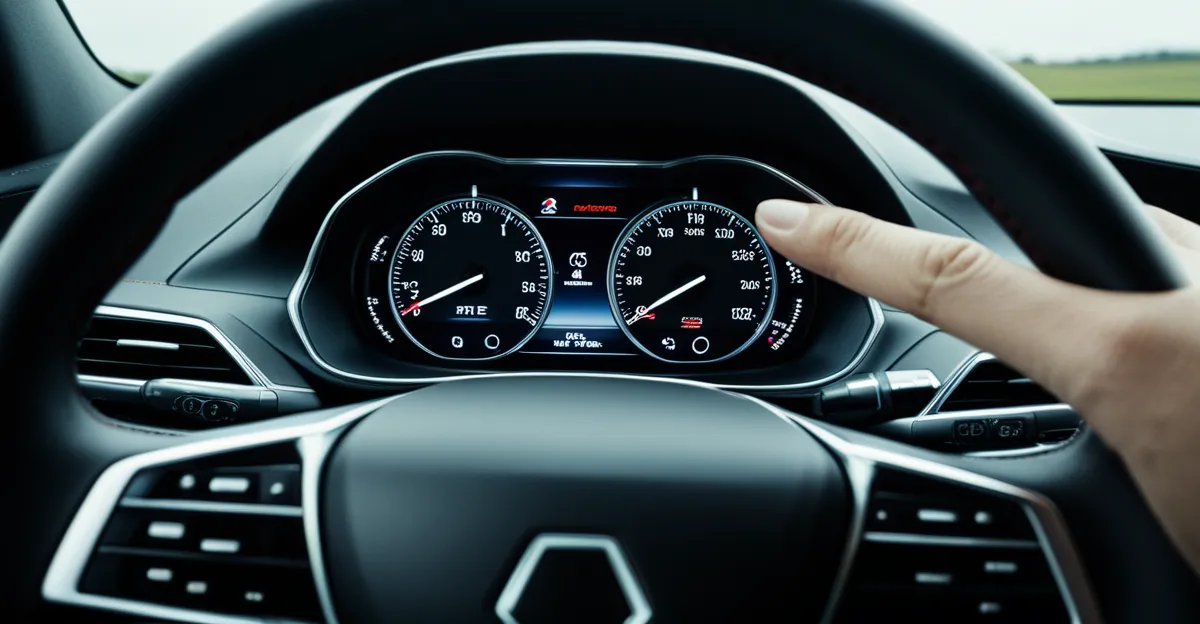Key Drivers of Future Innovation in the UK Automotive Industry
The future innovations in UK automotive are largely shaped by several major industry trends that serve as catalysts for transformation. Four key drivers dominate current and future advancements: electrification, connectivity, sustainability, and automation.** These factors are not only technologically influential but also redefine consumer expectations and regulatory landscapes.
Electrification continues to gain momentum across the UK automotive sector, driving efforts to reduce carbon emissions and dependence on fossil fuels. This trend is supported by rapid improvements in battery technology, charging infrastructure, and government incentives, making electric vehicles more accessible and desirable. Meanwhile, connectivity innovations embed vehicles within the broader digital ecosystem, enabling real-time data exchange for improved safety, navigation, and infotainment. These technologies also pave the way for autonomous driving, enhancing vehicle automation levels and offering new mobility experiences.
Also read : How Can Recent Advancements in UK Automotive Technology Impact Daily Commuting?
Sustainability is another powerful driver pushing the automotive industry toward greener production methods and materials. With growing emphasis on automotive sustainability UK, manufacturers are integrating circular economy principles such as recycling and reuse into their supply chains. This approach not only mitigates environmental impact but also reduces costs and enhances resource efficiency. Automation and digital manufacturing technologies, part of wider Industry 4.0 initiatives, streamline production processes and enable adaptive supply chains that can respond swiftly to shifting market demands.
Emerging technologies like artificial intelligence (AI), machine learning, and advanced sensors are disrupting traditional vehicle design and function. Industry experts stress the importance of collaboration between automotive companies, tech firms, and regulatory bodies to accelerate innovation while ensuring safety and compliance. Recent research highlights how these technological advancements improve vehicle safety, efficiency, and user customization options, setting the stage for new business models centered on connected and autonomous vehicles.
Also read : How Can Technological Advances Revolutionize the UK Automotive Industry?
In summary, the UK automotive industry’s future hinges on its ability to integrate cutting-edge technologies with evolving trends in electrification, connectivity, sustainability, and automation. By leveraging these drivers, the sector aims to maintain competitiveness and meet stringent environmental and consumer requirements in an ever-changing landscape.
The Impact of Electric and Alternative Fuel Vehicles
Electric vehicles UK have become a core focus within the future innovations in UK automotive, significantly influencing automotive industry trends. The growth trajectory of electric vehicles is propelled by expanding charging infrastructure and improvements in battery technology, allowing longer ranges and faster refueling times. These developments address key consumer concerns, thus accelerating EV adoption nationwide.
Beyond battery electric vehicles (BEVs), alternative fuels such as hydrogen and biofuels present complementary options for vehicle electrification. Hydrogen fuel cell vehicles offer rapid refueling and zero tailpipe emissions, making them ideal for heavy-duty transport and longer distances. Meanwhile, sustainable biofuels derived from organic waste material contribute to decarbonising conventional internal combustion engines during the transition period to full electrification.
Government incentives play a pivotal role in promoting electric vehicles UK and alternative fuels. Subsidies, tax breaks, and grants reduce upfront costs for consumers and manufacturers, stimulating market demand and supporting the widespread deployment of charging stations. Policies mandating bans on new petrol and diesel vehicles set clear targets, encouraging both industry and consumers to prioritize cleaner mobility solutions.
Together, these factors—growth in electric vehicles UK, development of alternative fuels, and supportive government policies—form a cohesive framework driving vehicle electrification. This framework not only accelerates progress toward sustainability but also aligns with wider industry efforts to innovate and decarbonise transportation.
Advancements in Autonomous Driving and Artificial Intelligence
The landscape of autonomous vehicles UK is rapidly evolving, driven by significant technological advancements in automotive AI and mobility technologies. Self-driving vehicle development in the UK has progressed from basic driver assistance systems to higher automation levels, incorporating sophisticated sensors, machine learning algorithms, and real-time data processing to achieve safer and more efficient road usage.
How is AI enhancing vehicle safety and efficiency? At its core, automotive AI enables continuous environmental monitoring and predictive analytics, allowing vehicles to anticipate hazards, adjust speed, optimize routes, and reduce energy consumption. This results in a more reliable and personalized driving experience that improves not only safety but also passenger comfort. For example, AI-driven perception systems use cameras and lidar to detect pedestrians and other vehicles, significantly lowering accident risks.
Collaboration is essential for advancing these technologies. UK manufacturers work closely with tech companies and regulators to navigate complex compliance requirements and ethical considerations. Joint initiatives emphasize data-sharing protocols and standardized testing environments, facilitating smoother deployment of autonomous systems. This multi-stakeholder approach ensures that developments in mobility technologies align with safety standards and public acceptance.
Current research highlights improvements in vehicle-to-everything (V2X) communication powered by AI, which supports coordinated traffic flow and reduces congestion. Moreover, the integration of AI with connectivity features is fostering new mobility models, such as shared autonomous taxis and on-demand transport services, redefining urban mobility and expanding consumer choices.
In summary, ongoing advances in autonomous vehicles UK and automotive AI are setting the stage for transformative changes in mobility, with strong industry collaboration driving innovation that prioritizes safety, efficiency, and user experience.
Sustainability and Environmental Innovations
Sustainability remains a cornerstone of future innovations in UK automotive, shaping both manufacturing and product design to meet stringent environmental goals. The UK automotive industry’s commitment to automotive sustainability UK reflects a broader push toward net zero targets. Manufacturers are adopting green transport initiatives that emphasize reduced carbon footprints throughout vehicle lifecycles, from raw material sourcing to end-of-life recycling.
Central to these efforts is the circular economy model, which prioritizes recycling, reuse, and waste reduction in car production. For example, many UK producers now integrate recycled materials into vehicle components, thereby lessening reliance on virgin resources and decreasing landfill waste. Alongside material reuse, innovations in lightweight design reduce overall emissions during vehicle use by improving fuel efficiency or extending electric vehicle range.
Low-emission zones across UK cities are directly influencing automotive design, encouraging manufacturers to produce vehicles compliant with stricter pollution standards. These zones incentivize innovation in engine technology and alternative propulsion systems, fostering the development of cleaner, quieter vehicles. Furthermore, investments in eco-friendly manufacturing methods, such as energy-efficient factories and solvent-free paints, contribute to the reduction of the sector’s environmental impact.
Together, these automotive sustainability UK initiatives demonstrate the industry’s proactive stance on environmental challenges. By embedding green principles into core operations and vehicle development, the UK automotive sector aligns itself with global decarbonisation ambitions while addressing consumer demand for cleaner transport solutions.
Manufacturing and Supply Chain Transformation
The future innovations in UK automotive are increasingly tied to advancements in automotive manufacturing UK and supply chain modernization. Automation and robotics have become vital for improving production speed, quality, and flexibility. The rise of Industry 4.0 technologies enables smart factories to integrate data from machines, sensors, and supply networks, optimizing manufacturing workflows and reducing downtime.
Digital supply chains significantly enhance resilience by providing real-time visibility into inventory levels, supplier status, and logistics. This transparency allows manufacturers to anticipate disruptions and adjust sourcing swiftly, which is crucial given recent global challenges. For instance, advanced analytics track component demand patterns, enabling proactive stock replenishment and minimizing delays.
Local sourcing strategies are gaining importance within the UK automotive manufacturing landscape. By investing in domestic suppliers, companies reduce reliance on international logistics, lower carbon footprints, and support regional economies. These efforts align with broader sustainability goals and help mitigate risks related to tariffs and geopolitical uncertainties.
Together, automation, digital transformation, and supply chain resilience form the backbone of manufacturing innovation in the UK automotive industry. Embracing these advancements not only improves efficiency but also positions the sector to respond dynamically to market changes and evolving industry demands.
Government Policy and Regulatory Influence
Government incentives and UK automotive policy play a pivotal role in shaping the trajectory of future innovations in UK automotive. Recent legislation has introduced stricter emission standards and ambitious targets for phasing out petrol and diesel vehicles, incentivizing manufacturers to accelerate electric and alternative fuel vehicle development. Such regulations ensure that automotive industry trends align with national climate commitments and consumer demand for cleaner transport options.
Funding initiatives from the government bolster research and development, especially in areas like battery technology, charging infrastructure, and mobility technologies including autonomous vehicles UK. This financial support helps bridge gaps between prototype development and commercial viability. For example, grants aimed at expanding the EV charging network remove a significant barrier to vehicle electrification, enabling broader consumer adoption of electric vehicles UK.
The regulatory environment also adapts to evolving trade landscapes post-Brexit. Changes in import-export rules affect supply chains and manufacturing competitiveness, prompting industry stakeholders to reconsider sourcing and partnerships. Policies facilitate smoother compliance with international safety and environmental standards, ensuring UK innovation remains globally competitive while safeguarding local interests.
In summary, government policy acts as both a catalyst and framework guiding technological advancements and sustainable practices within the UK automotive sector. Through targeted incentives, regulatory mandates, and infrastructure investments, the government supports continuous innovation that addresses industry challenges and opportunities alike.
Challenges and Opportunities for UK Industry Stakeholders
The UK car industry future faces significant transformation driven by rapid innovation and shifting market dynamics. One major challenge involves workforce adaptation. As automation and digital technologies reshape vehicle production and services, workers must acquire new skills related to software development, data analysis, and robotics. This evolution necessitates targeted training programs and collaboration between manufacturers, educational institutions, and policymakers to ensure a skilled labor pool capable of supporting technological advancements.
Simultaneously, emerging business models present new opportunities. Mobility services such as car sharing, subscription-based ownership, and on-demand transportation are disrupting traditional vehicle sales. These models leverage connectivity and autonomous driving innovations to offer flexible, user-centric mobility solutions. Industry stakeholders, including startups and established original equipment manufacturers (OEMs), must innovate to integrate these services sustainably into their operations.
Startups play a crucial role in this evolving landscape, often driving agility and disruptive technologies, while OEMs bring scale and market access. The synergy between these entities accelerates development in areas like electric powertrains, AI-enhanced safety features, and digital platforms. As the sector evolves, embracing these challenges and opportunities is vital for maintaining competitive advantage and supporting the broader goals of sustainability and technological leadership within the future innovations in UK automotive.











